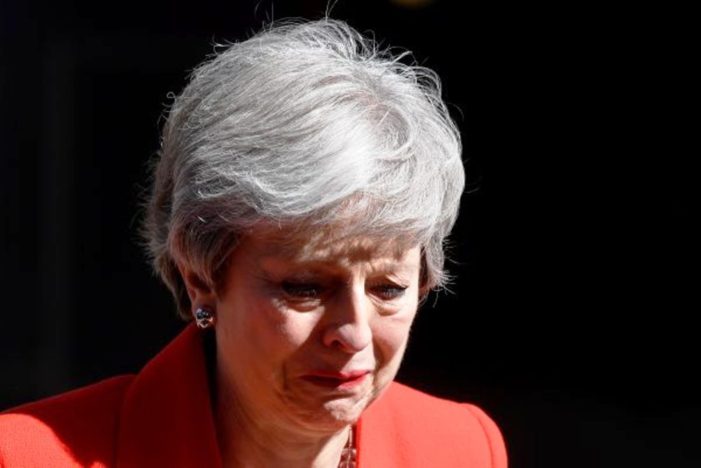By Ben Kerrigan-
Theresa May’s resignation was forced in a desperate search for party consensus. Many Mps feared that an alliance was being formed with the opposition leader to solve a national crisis. Politicians are simply anathema to moves like actions like that, but Ms May was diplomatically looking for an answer to a problem beyond her. Mps refused to unite on any of her proposed bills to resolve the Brexit crisis, and continued to pile pressure on her to step down.
Her departure will blow the doors wide open for contest. Contest for a position carrying many responsibilities, especially around Brexit, and for a leader who will also be judged by the standards he or she sets, as well as those generally expected.
May has somewhat been a besieged leader of her party for many months now, bearing the burden of the whole of parliament in the fight to deliver a Brexit for the people. Politics has not been kind to May either, who has done her best to deliver Brexit, but struggle around the nuances underlying the precise delivery of the actual exercise involving egos, political correctness, but also a lack of intelligent discourse about both ends of the spectrum surrounding leaving the EU, and the debated question of whether the British public voted for the EU long term scenario that was playing out.
May’s pursuit for a potential political compromise by meeting with Corbyn was as close as it got to her unwittingly executing her own career. Her intentions may have been good, but it backfired. Its weakness was that May would herself have been able to convince her party of the way forward, but she was unfortunately given a thumbs down at every stage. Hard core euroskeptics were never going to consider another referendum as an option if presented by May herself, especially as she had always spoken against that.
Yet, the fact the idea of another referendum was being pushed up the ranks of of the Labour party is one of the reasons Mps began barking louder . Every turn May took to seek a majority in parliament, it was blocked. Three rejections of her proposed bill was enough to signal the end of her days in Downing Street were numbered.
Her failure to unite Mps on any of her proposed policies was always going to be a nagging issue, No alternative approach that would sway parliament was ever put forward. Mps may be saving their ideas for where they are in power, but what a dicey journey it is.
Boris Johnson is still considered one of the front runners for No 10, but whether he has an answer to the Brexit conundrum that has engulfed British politics and the nation as a whole for a few years now. remains to be seen. May defended her efforts as prime minister, stressing her commitment to deliver a Brexit the people voted for.
CHOICE
‘In her resignation speech, May said The British people voted to leave the European Union. I feel as certain today as I did three years that in a democracy, if you give people a choice you have a duty to implement what they decide.
I believe it was right to persevere, even when the odds against success seemed high. But it is now clear to me that it is in the best interests of the country for a new prime minister to lead that effort.
It will be for my successor to seek a way forward that honours the result of the referendum. To succeed, he or she will have to find consensus in parliament where I have not. Such a consensus can only be reached if those on all sides of the debate are willing to compromise. ”
What that way is will depend on who takes office and their political ideologies in relation to Brexit. So, in 2 weeks time, Britain will be expecting a new prime minister.
May raised a few areas of accomplishments, one being the public inquiry into the Grenfell Tower. As she listed those areas she considered to be domestic achievements in the statement on Friday, May said: “I set up the independent public inquiry into the tragedy at Grenfell Tower – to search for the truth, so nothing like it can ever happen again.”
She added that she used her premiership “to fight the burning injustices that still scar our society.” The Greenfell fire in which 72 people died when the tower block in South Kensington was a national disaster about which an inquiry was launched but not concluded. caught fire in July 2017,

